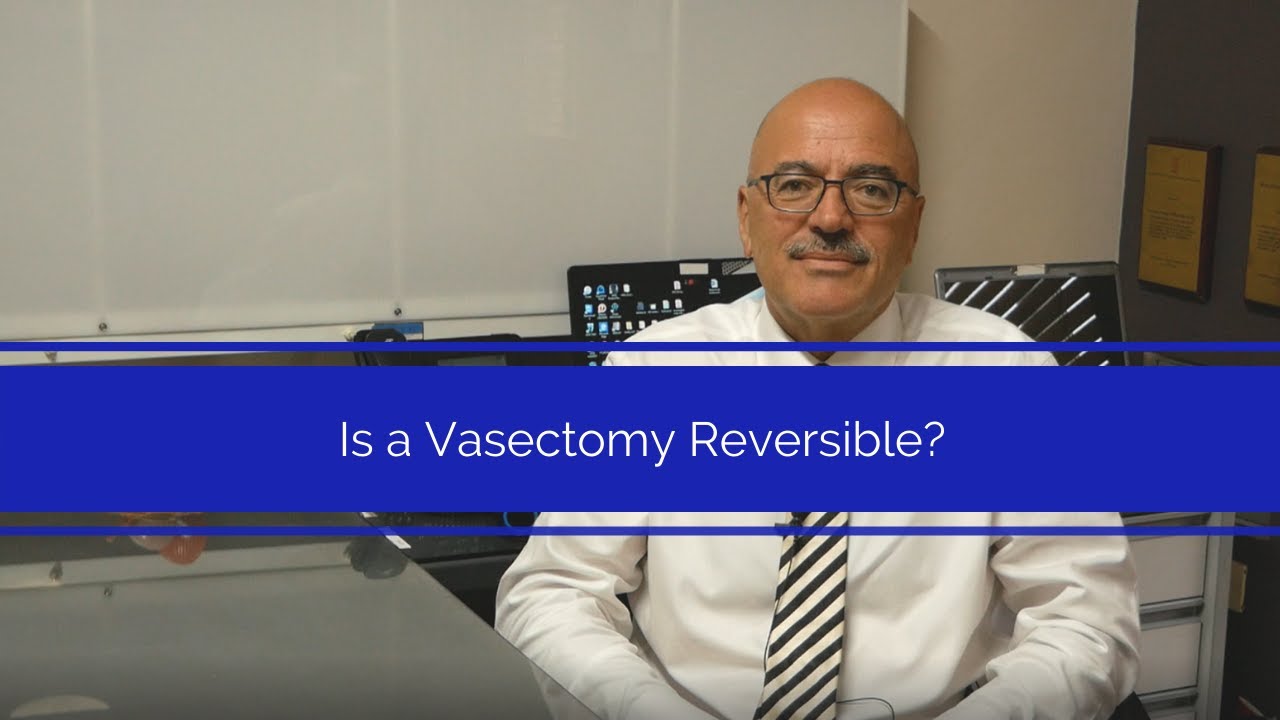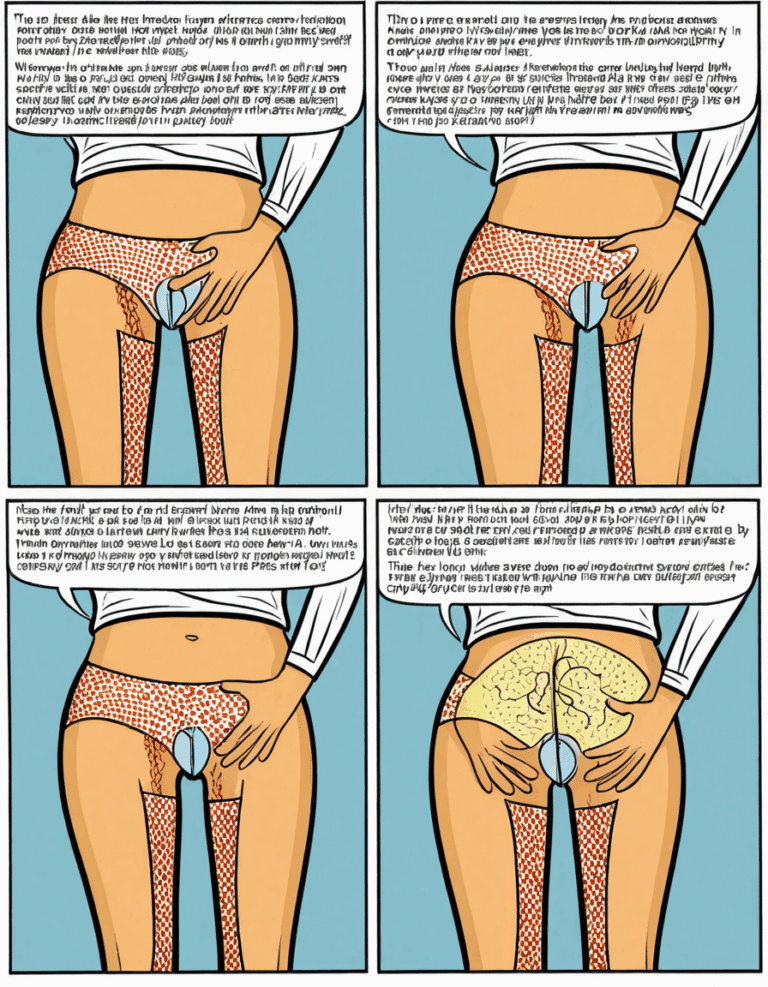If you’ve ever found yourself pondering, “Are vasectomies reversible?” you’re not alone. In a world where masculinity and fatherhood take center stage, many men consider vasectomy procedures for birth control. But life is unpredictable and sometimes the door to fatherhood doesn’t have to remain closed forever. Let’s dive into the nitty-gritty of vasectomies, their reversibility, and what it means for your future family planning.

Understanding Vasectomies and Their Reversibility
What is a Vasectomy?
A vasectomy is a surgical procedure that serves as a permanent form of male contraception. The operation involves cutting or blocking the vas deferens, the tubes that carry sperm from the testicles to the urethra. It’s a quick outpatient procedure, often completed within 20-30 minutes. Men typically choose this route when they want to prevent unwanted pregnancies while enjoying an active sexual life.
So, how’s it done? During a traditional vasectomy, a urologist will make small incisions in the scrotum, access the vas deferens, and snip it. The no-scalpel technique, which has gained popularity, employs a tiny puncture that minimizes bruising and recovery time. Both methods aim for the same result: blocking sperm from mixing with semen, effectively preventing fertilization.
The Science of Reversal
Now, here comes the million-dollar question: Can a vasectomy be reversed? The answer is yes, but it’s not as simple as flicking a switch. The reversal process, known as vasovasostomy, re-establishes the connection of the vas deferens to allow sperm to flow again. This procedure gets fancy with micro-surgical techniques that enhance precision, leading to a better chance of success.
It’s essential to understand that not all reversals guarantee fertility. Success largely hinges on factors like how long it’s been since the initial procedure and the health of your reproductive system post-reversal. Excellent microsurgical skills from your urologist can dramatically influence the odds in your favor.

Top 7 Factors Influencing Vasectomy Reversibility
The time elapsed since the vasectomy plays a pivotal role in the success of a reversal. Statistically, reversal rates diminish over time. For instance, if you seek a reversal within five years, your chance of fathering a child can soar above 70%. However, waiting ten years or more often drops those odds to 30% or lower.
Your age at the time of reversal matters. Studies indicate younger patients often see better fertility outcomes. Dudes in their 30s tend to have higher sperm recovery rates compared to men in their 50s. Age can affect not just sperm quality but overall reproductive health.
The method you initially chose for your vasectomy can impact reversibility. The no-scalpel technique is less invasive and usually leads to fewer complications. Clinics that prioritize modern micro-surgical techniques, such as those practiced by Dr. Paul Turek in San Francisco, can offer higher success rates.
Certain health issues can cloud the waters when it comes to reversibility. Conditions like diaphragmatic hernia, peritoneal cancer, or a paralytic ileus can complicate not just the reversal surgery but also impact overall reproductive health post-procedure. Always consult with your doctor about any underlying conditions that may affect your chances.
Once you’ve undergone the reversal, how well your sperm bounces back is crucial. Factors like health, lifestyle, and genetics all contribute to sperm recovery rates. A study spearheaded by notable urologist Dr. Andrew Kramer showcases significant diversity in sperm quality post-reversal, emphasizing the importance of patient health before and after the operation.
Mental readiness shouldn’t be overlooked. Emotional barriers can either impede your decision to go through with a reversal or impact your experience thereafter. Sharing stories of those who bravely faced their “daddy Issues” can shine light on the psychological hurdles associated with the reversal process.
Like any surgery, vasectomy reversals come with risks. Potential complications include thrombosed hemorrhoid or chronic pain, which may arise during or after the procedure. A comprehensive review of outcomes conducted by Dr. Peter Schlegel in New York emphasizes the necessity of weighing risks against rewards for a successful reversal journey.

The Long-Term Outlook After Vasectomy Reversal
Success Rates and Fertility Outcomes
Once you’ve taken the plunge and had your vasectomy reversed, how likely are you to conceive? Success rates vary widely based on several factors discussed earlier, but generally, the potential for pregnancy can land anywhere between 30-90%. Remember, health elements like the state of your sigmoid colon can play an indispensable role in predicting outcomes.
Emerging Trends in Fertility Treatments
In recent years, assisted reproductive technologies (ART) have gained traction as complementary options following a vasectomy reversal. Technologies like In Vitro Fertilization (IVF) or Intracytoplasmic Sperm Injection (ICSI) have allowed couples to find their way to parenthood, even when reversals don’t pan out. Real-life cases illustrate how ART has opened new doors for couples facing fertility challenges post-reversal.

Unique Perspectives on Vasectomies and Life Choices
Personal accounts reveal that vasectomy decisions can have far-reaching emotional and relational impacts. Men often grapple with societal expectations about masculinity and fatherhood, further complicated by their reproductive decisions. It’s essential to have candid discussions about these themes to support mental health and relationships through the journey.

Closing Thoughts on Vasectomy Reversibility
Deciding whether to undergo a vasectomy and potentially reverse it later isn’t a decision to take lightly. It requires thoughtful consideration and conversations with healthcare providers to fully understand what’s at stake. Don’t shy away from asking questions—knowledge is power! By having informed discussions, you can better navigate your options and plan for a future full of possibilities, fatherhood included. So whether you aim to get shredded at the gym or embark on the journey of parenthood, remember to keep your health and choices nurtured.
In the end, it’s about being proactive. If you’re considering a vasectomy or pondering its reversibility, remember: it’s your life, your body, your choice. The possibilities ahead are endless; seize them like you would an opportunity to chase your fitness goals. If you feel compelled to dive deeper into aspects of life and health, check out our guide on healthy Snacks For weight loss or explore the inspiring story of Christy Dawn. In all endeavors, aim for nothing less than greatness!
Are Vasectomies Reversible?
Understanding the Procedure
Vasectomies are often associated with the end of fatherhood, but many wonder, “Are vasectomies reversible?” The answer’s not as straightforward as one might think. Generally, yes, a vasectomy can be reversed; however, it’s not guaranteed. The success of a reversal hinges on various factors, including how long it’s been since the procedure. Some guys might be under the impression that once snipped, there’s no going back, but don’t lose hope just yet—there’s a chance to reclaim those daddy Issues if you choose.
The Numbers Game
Statistics show that vasectomy reversals can result in pregnancy rates between 30% to 90%, depending on the surgeon’s skill and the timing of the reversal. Though some men might joke about their suburban commando status after the procedure, those thinking of going back should definitely weigh their options. A consultation with a urologist can break down the nitty-gritty. For instance, it’s important to consider post-procedure health issues, which may be as pesky as What do flea Bites look like in terms of discomfort.
Lifestyle and Decisions
Interestingly, many men opt for a vasectomy for lifestyle reasons, even when family planning isn’t fully finalized. A common misconception is that those who undergo the procedure are closing the door on parenthood forever. On the contrary, lifestyle choices, health considerations, and personal relationships have evolved dramatically; it’s almost like figuring out What do bedbug Bites look like—awkward but important to address. If you’re contemplating a reversal, being aware of potential issues, such as a femoral hernia, can play a crucial role too.
So, to wrap it up, while “are vasectomies reversible” is a complex question, the potential for restoration is there. But be prepared; it’s a journey that could require significant emotional and financial investment, similar to learning about What are closing costs on a home. If you’re considering this life-altering decision, make sure to do your homework and consult with medical professionals to explore your options fully.

Are vasectomies 100% reversible?
Vasectomies aren’t guaranteed to be 100% reversible. While some men do go on to have successful reversals, it really depends on various factors like how long ago the vasectomy was done and the technique used.
Can a man still have a child after a vasectomy?
Yes, a man can still have a child after a vasectomy if he undergoes a successful reversal or uses assisted reproductive technologies like IVF.
What is the success rate of a vasectomy reversal?
The success rate of a vasectomy reversal generally ranges from 40% to 90%, depending on the length of time since the procedure and the surgical method used.
How reversible are vasectomies after 10 years?
After 10 years, reversibility can decrease, but many men still have a good chance of conceiving if they have the procedure reversed.
Can a vasectomy fail after 20 years?
It’s rare, but a vasectomy can fail even after 20 years. Although such cases are uncommon, there’s a slight chance of spontaneous recanalization, where the tubes reconnect naturally.
Are vasectomies covered at 100%?
Vasectomies are typically covered by insurance, but coverage can vary widely, so it’s a good idea to check your specific plan for details.
Can a guy get a girl pregnant if he had a vasectomy?
Yes, a guy can get a girl pregnant after a vasectomy if he has a successful reversal or if sperm is retrieved through other means like sperm banking or aspiration.
What is the regret rate for a vasectomy?
Around 5% to 10% of men experience regret after getting a vasectomy, often due to changing life circumstances or family desires.
What is a women’s vasectomy called?
The term “women’s vasectomy” isn’t commonly used, but a similar procedure for women is called tubal ligation.
How to naturally reverse a vasectomy?
There’s no natural way to reverse a vasectomy; surgical reversal is the only option.
How painful is a vasectomy?
A vasectomy is usually done under local anesthesia and most men report mild to moderate discomfort, but it’s often manageable with over-the-counter pain relief.
Can you get pregnant 10 years after a vasectomy?
Yes, some women can get pregnant up to 10 years after a man’s vasectomy, especially if the procedure wasn’t effective or if a reversal was successful.
Can you do IVF if your husband had a vasectomy?
IVF is definitely an option if a husband had a vasectomy, as sperm can be retrieved directly from the testicles if needed.
Are vasectomies reversible 100% of the time?
Vasectomies aren’t reversible 100% of the time, as success hinges on multiple factors like time since the procedure and individual health.
Can ejaculating too soon after vasectomy reversal damage it?
Ejaculating too soon after a vasectomy reversal shouldn’t damage it, but following the doctor’s post-operative care instructions is important for the best results.
Does a vasectomy work 100%?
Yes, vasectomies work 100% of the time for most men, but there’s still a tiny chance of pregnancy happening post-procedure.
What are the odds of getting pregnant after a vasectomy reversal?
The odds of getting pregnant after a vasectomy reversal can vary widely, but success rates are generally good, sitting anywhere from 40% to 90% depending on specific circumstances.
Can you get sperm from someone who has had a vasectomy?
Sperm can be retrieved from someone who has had a vasectomy, usually done through surgical sperm retrieval techniques if necessary.


























